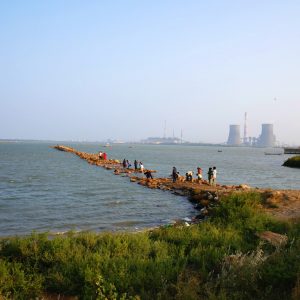The Stream, February 1: Recycled Sewage Set To Bring Water and Power to Kenya Slum
The Global Rundown
A new sewage treatment plant in Kibera, Kenya aims to provide residents with recycled water and electricity. A low-oxygen dead zone is one of many threats to fisheries and communities in the Bay of Bengal. A new report links political and business elites to violence against environmental activists in Honduras. Groundwater pollution from coal ash ponds is the subject of a federal trial in Tennessee. The global fashion industry is making incremental progress on cutting water use and pollution.
“Accessing water and electricity is a big problem for us slum dwellers. I am looking to this recycling plant for things to change.” –Abdullahi Ibrahim, a resident of Kenya’s Kibera slum, referring to a new sewage treatment plant that will generate recycled water as well as power from solid waste. The new plant is set to begin operation in March. (Reuters)
By The Numbers
60,000 square kilometers Area of a low-oxygen “dead zone” discovered in the Bay of Bengal, likely the result of nutrient pollution from sewage and agricultural runoff that flows into the bay via rivers. The dead zone is one of many threats facing the bay and the communities that depend on its fisheries. Guardian
2,700 liters Amount of water it takes to create a typical cotton T-shirt. Some apparel companies are beginning to experiment with new technology and methods to reduce their water use and pollution. News Deeply
Science, Studies, And Reports
More than 100 environmental activists have been murdered in Honduras for opposing hydropower dams, mines, and other mega-projects. A new report by Global Witness accuses political and business elites of having ties to the violence. Guardian
In context: Learn about the global rise in violence against environmental campaigners defending safe water.
On The Radar
A trial over groundwater pollution from coal ash ponds in Tennessee is underway in Nashville. On Tuesday a man who lives near a coal-fired power plant testified that he no longer drinks his well water due to fears about contamination. Associated Press
A news correspondent for Circle of Blue based out of Hawaii. She writes The Stream, Circle of Blue’s daily digest of international water news trends. Her interests include food security, ecology and the Great Lakes.
Contact Codi Kozacek




